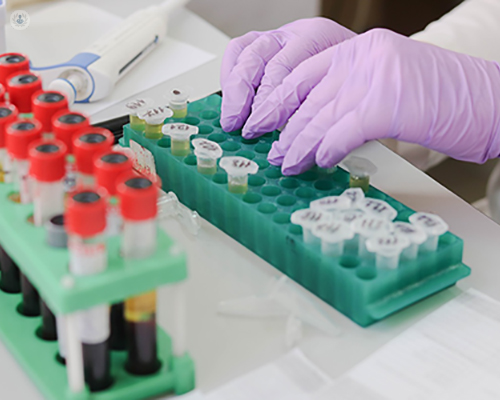Thiopurine Methyltransferase (TPMT)
When is it requested?
TPMT testing is typically requested before initiating treatment with certain medications, such as thiopurine drugs. It helps assess an individual's ability to metabolise these drugs and determines the appropriate dosage.

Why undergo the analysis?
Analysis of TPMT levels is essential to avoid adverse reactions to thiopurine medications. Individuals with low TPMT activity may be at an increased risk of experiencing toxicity, while those with high activity may not benefit from the therapeutic effects.
When should the analysis be done?
TPMT analysis is usually done before starting thiopurine drug therapy. It provides valuable information for clinicians to personalise treatment plans based on an individual's TPMT status.
What sample is required?
The analysis requires a blood sample, usually obtained through a standard blood draw. This sample is then sent to the laboratory for TPMT testing.
Is any type of prior preparation necessary?
No specific preparation is required for TPMT testing. However, it's crucial to inform your healthcare provider about any medications or supplements you are currently taking.
How is it used?
TPMT analysis helps healthcare professionals determine the appropriate dosage of thiopurine medications, reducing the risk of adverse reactions and optimising therapeutic benefits.
What are the normal values?
Normal TPMT activity varies among individuals. Your healthcare provider will interpret the results and guide you accordingly. Generally, normal values indicate a moderate ability to metabolise thiopurine drugs.
|
TPMT Activity |
Interpretation |
|
Low |
Increased risk of drug toxicity |
|
Normal |
Moderate ability to metabolise |
|
High |
Insufficient therapeutic effects |
What does it mean to have altered values?
Altered TPMT values can indicate either low or high enzyme activity. Low activity may lead to an increased risk of drug toxicity, while high activity may result in insufficient therapeutic effects. Your healthcare provider will tailor your treatment plan based on these findings.